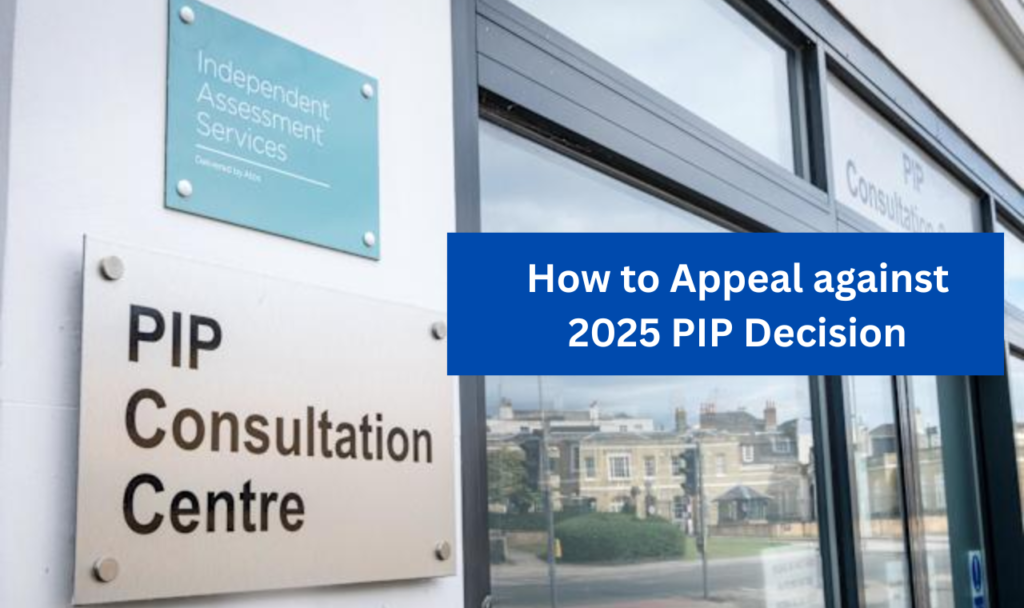The UK government’s recent changes to the Personal Independence Payment (PIP) system mark a significant shift in how disability and health benefits are assessed. With stricter eligibility criteria, many claimants will find it more difficult to qualify for the financial support they rely on. These changes are set to impact hundreds of thousands of people, and it’s crucial to understand how you can appeal a decision if you find yourself affected.
Tighter Eligibility for PIP: What You Need to Know
The Department for Work and Pensions (DWP) has introduced major reforms to the PIP system in 2025. The aim of these changes is to tighten eligibility, ensuring that only those with the greatest need receive benefits.
One of the primary adjustments is the increase in the points threshold required to qualify for the daily living component of PIP. Claimants now need to score at least 8 points across all assessment categories. Additionally, claimants must score a minimum of 4 points in one specific daily living activity to be eligible for this component. This will make it harder for many people to meet the criteria and access the financial support they need.
The government is also increasing its reliance on face-to-face assessments, moving away from remote methods like phone or video calls. This change aims to more accurately assess claimants’ needs in person, but it could also lead to delays and further complications in the process.
These strict eligibility criteria are expected to result in the removal of financial assistance for over 230,000 current claimants. Around 600,000 potential claimants may also find that they no longer qualify for support, resulting in an overall reduction of welfare spending. According to experts, some claimants could lose up to £4,300 per year in benefits.
What to Do If You Disagree with a PIP Decision
If you’ve been affected by these changes and disagree with your PIP decision, there is a process in place to challenge it. Here’s a step-by-step guide to help you navigate the appeal process.
Step 1: Request a Mandatory Reconsideration
The first step in challenging a PIP decision is to request a Mandatory Reconsideration. This must be done within one month of receiving the decision letter. If more than a month has passed but less than 13 months, you can still apply for reconsideration, but you will need to provide a valid reason for the delay.
To begin, you can fill out the CRMR1 form, available on the GOV.UK website. You can print it out and mail it to the Department for Work and Pensions (DWP) or, alternatively, write a letter explaining why you disagree with the decision.
During this stage, you can provide additional evidence to support your case, such as medical reports, personal statements, or other documents. The DWP will review your case, and if they agree with your appeal, they will overturn their decision.
If you do not receive a satisfactory result from this stage, you can move on to the next step.
Step 2: Appeal to a Tribunal
If the DWP does not change its decision after Mandatory Reconsideration, you can take your case to an independent tribunal. An appeal to a tribunal must be submitted within one month of receiving the Mandatory Reconsideration Notice.
To appeal, you need to submit a request to the tribunal. The appeal process is handled by the HM Courts & Tribunals Service, and you can do so through the GOV.UK website. Make sure to include any new evidence or information that may help your case, as the tribunal will use this to make a final decision.
You will not need to attend the tribunal in person if you do not want to. The tribunal will make its decision based on the written evidence you submit, but you can choose to attend a hearing if you feel it would benefit your appeal.

Step 3: Wait for the Tribunal’s Decision
Once your appeal has been submitted, you will need to wait for a decision. It can take several months before you hear back from the tribunal. While waiting, it’s important to keep track of any additional documents or changes that may impact your case. If the tribunal upholds your appeal, the DWP will be required to re-assess your PIP claim and adjust your benefits accordingly.
Where to Seek Help and Advice
The PIP appeal process can be complicated and emotionally taxing. Fortunately, there are several organizations that can provide support and guidance throughout the process.
- Citizens Advice offers free advice on how to handle PIP decisions, including how to request Mandatory Reconsideration and make an appeal. You can find more information on their website.
- Turn2us also provides detailed advice on appealing PIP decisions and understanding your options. Check out their helpful resources here.
- Benefits and Work Forum offers an online community where claimants share their experiences with the PIP appeal process and provide helpful tips.
Additional Information and Resources
To learn more about the changes to PIP and how they might affect you, check out the official announcements and government publications:
- GOV.UK’s PIP page provides an overview of the eligibility criteria and how to apply for PIP. Visit the GOV.UK website.
- DWP’s Welfare Reform page offers updates on changes to the welfare system.
Conclusion
The recent changes to PIP eligibility will significantly affect many individuals in the UK. If you disagree with the decision made regarding your claim, it is important to understand your rights and the steps involved in appealing. The process may take time, but by following the correct steps, you can ensure that your case is heard and that you receive the financial support you are entitled to.
For further information on the appeal process, make sure to consult the resources mentioned above or seek expert advice if needed. The outcome of your appeal could make a significant difference to your financial situation, so it’s worth taking the time to get the support you deserve.

Pankaj Kumar is a journalist at Chandigarh X, covering admit cards, recruitment, and government schemes. His articles provide readers with detailed insights into application processes, eligibility, and exam updates.
Outside of work, Pankaj enjoys traveling, fitness, and cricket, often participating in local matches on weekends.



